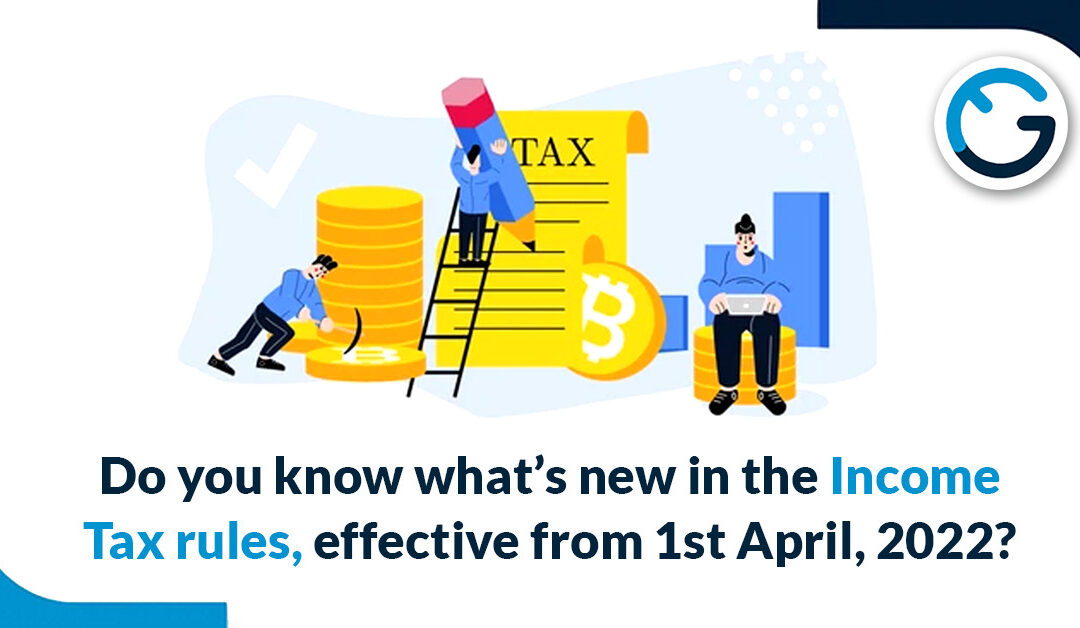For the Financial Year 2022-2023, there shall be some major changes in the Income Tax rules which can affect your financial graph. From April 1, 2022, you can witness significant changes in the bank rules related to tax, GST, Fixed Deposits, Provident Fund, Cryptocurrency, etc.
Some major Income Tax rule changes effective from the next month are as follows:
Taxes to be levied on Crypto Assets
As proposed under the recent scheme for Taxation of Virtual Digital Assets, from FY 2022-23, the investors of cryptocurrency in India shall also be liable to pay taxes. An Income Tax plus Cess & surcharges shall be levied at the rate of 30% on the gains made from cryptocurrency as it is charged in speculative transactions.
However, this new scheme does not allow crypto assets’ losses to be set off against the crypto profits.
Updated Income Tax Returns
The new tax rules have enabled the taxpayers to file an updated income tax return to remove any errors. Earlier, the taxpayers were given a window of 5 months to revise or amend the returns. However, the new rules allow the taxpayers to update & file their returns within two years from the end of the assessment year.
Higher NPS Deductions for State Government Employees
Section 80 CCD of the Income Tax Act, 1961 provides that an employer’s contribution to National Pension Scheme (NPS) can be claimed by an employee as a deduction while estimating the employee’s net taxable income.
Earlier, only Central Government employees were allowed to claim a deduction of 14% of their salaries as NPS contributions, and state government employees could claim 10%. However, From April 01, 2022, the State Government Employees can claim such deductions for NPS Contributions up to 14% of their salary.
Tax on PF Accounts
The Central Board of Direct Taxes has introduced new rules, i.e., the Income Tax (25th Amendment) Rules, 2021, which provides for maintaining two Provident Fund accounts out of which one will be taxable, and the other will be non-taxable.
An EPF account having contributions below 2.5 lakh per year shall not be taxed. However, if any EPF account has contributions more than the capped amount of 2.5 lakh up to 5 lakh, it shall be taxed. No employer can make an EPF contribution of more than 5 lakh in a year.
Tax Benefits for COVID treatment & PWDs
The Central Board of Direct Taxes has also relieved taxpayers by announcing an exemption on Income Tax for expenses incurred on COVID-19 Treatment. If you have received money from your employer or anyone else for COVID Treatment, you shall be liable to receive the Income Tax exemption for the same. However, this IT Exemption has a threshold limit of Rs. 10 Lakh.
Furthermore, if the parent or guardian of a person with disabilities purchases a life insurance policy for the PwD, then the parent or guardian shall be liable to enjoy tax relief under Section 80DD of the Income Tax Act, 1961.
With the ending of Financial Year 2021-22, we are ready to witness some significant changes in the tax regulations for the upcoming Financial Year. It is advisable to thoroughly understand the recent tax rule amendments to assess and plan your expenses accordingly!

